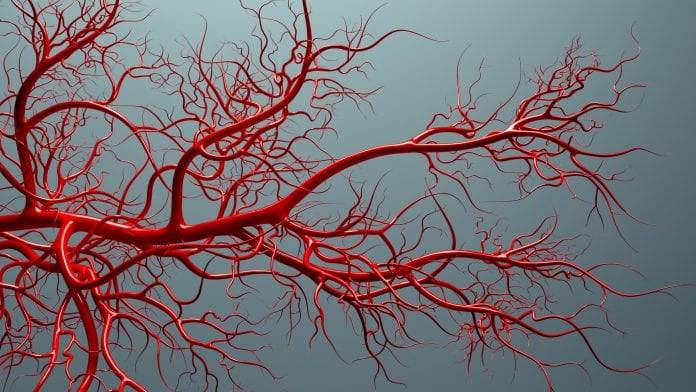
A new project that will investigate the role of inflammation in blood vessel damage in COVID-19 patients has received a grant from Heart Research UK.
The research project, which will be carried out by the University of Dundee, has received a grant of £133,000 from Heart Research UK, and will explore how COVID-19 causes damage to the heart and blood vessels in people who have no pre-existing disease.
The project will be led by Professor Faisel Khan, Professor of Cardiovascular Sciences at the University of Dundee. Professor Khan and his team believe that abnormal activation of a type of white blood cell, called the neutrophil, that is important in the body’s immune response, might be the link between COVID-19 and damage to the blood vessels.
Understanding COVID-19
Harmful effects of COVID-19 are excessive in people who have pre-existing diseases of the heart and blood vessels, and can cause ‘new’ damage in people who have no disease. The lining of blood vessels, called endothelium, acts as a barrier and first point of contact for the virus.
Recent research shows evidence that the virus causes damage to the endothelium, which in turn leads to disease of the heart and blood vessels, particularly the very small blood vessels, called microvessels. It is thought that inflammation in the body caused by COVID-19 might be responsible for some of the harmful effects on the blood vessels.
Further research has also suggested that a new drug called brensocatib reduces the abnormal activation of neutrophils and improves the symptoms of patients who have bronchiectasis, a lung disease that is caused by inflammation.
The aims of the project are to explore whether abnormally high activation of neutrophils, caused by inflammation, is responsible for long term damage to the endothelium and small blood vessels in COVID-19 patients, and if reducing activation of neutrophils with the drug brensocatib reduces damage to the endothelium and improves the function of the blood vessels.
The team will assess the function of the small blood vessels over 12 months in 120 patients who have had COVID-19 to see if this is abnormal compared with healthy people who have not had COVID-19. They will apply small amounts of chemicals to the skin and use a laser machine, which measures blood flow in the microvessels, to assess how well the blood vessels are working. They will also take blood samples to measure the activation of neutrophils and see if high levels of activation are linked to blood vessel damage.
Also, they will use these methods in 100 patients who have been hospitalised with COVID-19, to compare the effects of the drug brensocatib against a placebo on the activation of neutrophils and function of the blood vessels. These measurements will be carried out before and after 28 days of treatment.
Professor Khan said: “As COVID-19 is still a relatively new disease, we are still trying to understand how it affects the body. We know that people with pre-existing cardiovascular conditions are more likely to suffer from serious complications, and that COVID-19 itself can damage the heart and blood vessels.
“With this project, we hope to be able to better understand why and how COVID-19 damages the cardiovascular system, and hope to find new ways to prevent or reduce that damage, improving outcomes and quality of life for patients. We are very grateful to Heart Research UK for supporting this exciting research.”
Kate Bratt-Farrar, Chief Executive of Heart Research UK, said: “We are delighted to be supporting the work of Professor Khan and his team, whose research is vital in understanding how we are being affected by one of biggest health challenges we have ever faced.
“For some time, it has been known that COVID-19 can have long-lasting effects on the heart. Through this research, we hope to be able to better understand how this damage occurs, and how we can hopefully improve outcomes for patients.
“Heart Research UK grants are all about helping patients. They aim to bring the latest developments to those who need them, as soon as possible. The dedication we see from UK researchers is both encouraging and inspiring, and we at Heart Research UK are proud to be part of it.”
The study will show whether increased activation of neutrophils contributes to development of long-term disease of the blood vessels in COVID-19 patients and whether reducing their activation with drug treatment has beneficial effects. Targeting neutrophils in this way could be an important treatment option for reducing blood vessel and heart complications in people who have COVID-19.






















